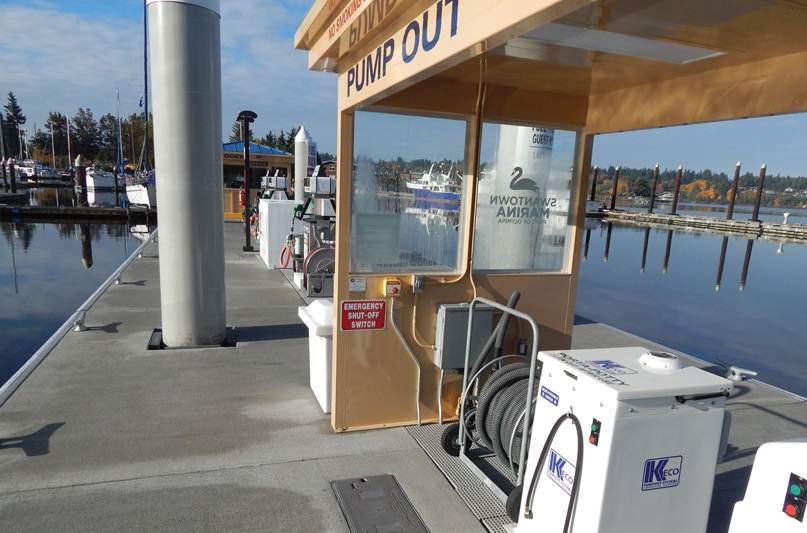How often have you gone to use a pumpout only to find it broken? A truly unfortunate situation for someone who goes out of their way to do what they feel is the proper alternative to discharging their sewage (also known as blackwater) directly into the drink. The state of Washington and participating stakeholders spend over a million dollars a year on new and replacement pump-out systems as well as yearly operations and maintenance on public systems that are often sophisticated units compared to pumpouts of past.
Today, pump-out equipment is much improved with higher quality pumps and even sophisticated monitoring equipment. “I have been using pumpouts for decades,” shared Robert D’Arcy of the Schooner Martha Foundation. “And can say with confidence that they usually do work and work well.”
However, in the not-too-distant past, coming across a broken pump-out unit was not uncommon. Pump-out equipment is still sensitive to environmental threats and, of course, misuse. They are most vulnerable when used for something it’s not intended for, such as bilges, garbage, or whatever else the human imagination comes up with. Improper use of a pumpout exposes it to materials such as petroleum products and sharp objects such as screws that can cause severe damage to the system. Petroleum damages the inner peristaltic hose found in most pumpouts and the sharp objects can poke holes and cause tears in these hoses. Misuse is often the reason behind a downed pumpout – which results not only in inconvenience for future users, but in unanticipated costs.
 On a visit to South Puget Sound Marine Park, a Washington State Parks Area Manager found petroleum products in the pumpout. “The pump-out facility was immediately deemed “Out of Order” and has remained out of order ever since. The repair costs cannot be absorbed in the park’s tight budget without drawing services or amenities from somewhere else. In this case, the marine pumpout is a closed system, but had it been attached to a park septic system, the damage could have been much more extensive.”
On a visit to South Puget Sound Marine Park, a Washington State Parks Area Manager found petroleum products in the pumpout. “The pump-out facility was immediately deemed “Out of Order” and has remained out of order ever since. The repair costs cannot be absorbed in the park’s tight budget without drawing services or amenities from somewhere else. In this case, the marine pumpout is a closed system, but had it been attached to a park septic system, the damage could have been much more extensive.”
As part of the Pumpout Washington campaign, I’ve talked to literally thousands of Washington boaters and have personally inspected hundreds of pumpouts statewide. In at least a third of these pumpouts, I have witnessed oil sheen emanating from the nozzle tips. I can say with certainty that bilge pumping with a sewage pumpout is a common problem. I’ve witnessed the damage caused from everything from drywall screws, copper shanked nails, cat litter, and in one case, a pumpout that was shut down because of a T-shirt clog in the system. Thankfully in the case of the T-shirt incident, the marina had both a portable and a mobile pumpout boat to respond to boaters’ pump-out needs during the month it took to repair the system. But most marinas don’t have back-up, pump-out equipment.
Washington state has only 140 pumpouts. It can take months and thousands of dollars to repair them due to issues that can be easily avoided. Please be mindful of only using marine sewage pump-out equipment for what they are intended for: blackwater.


